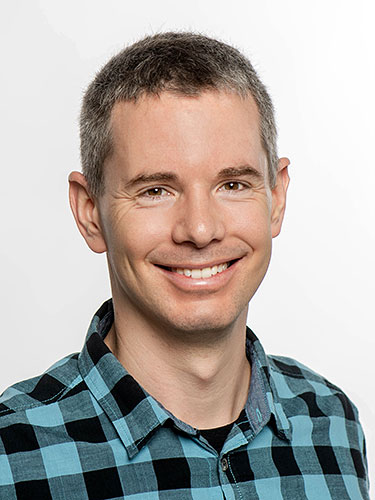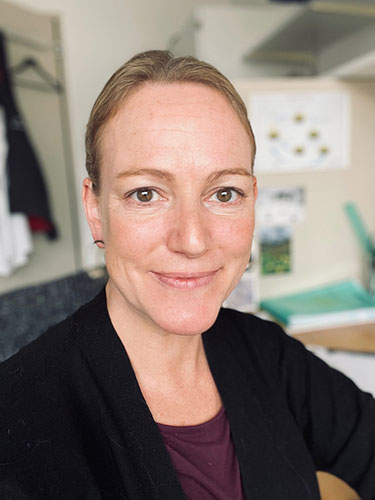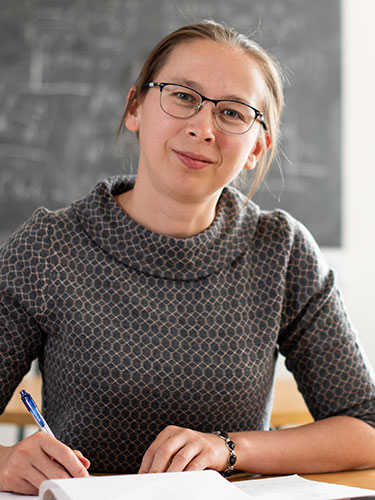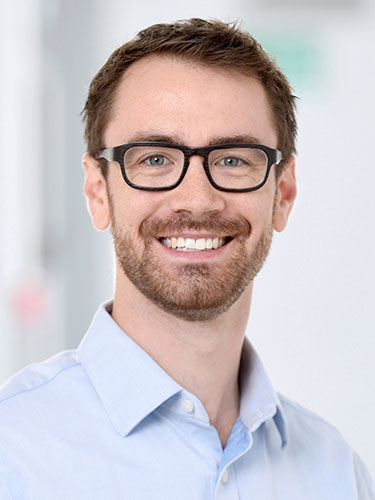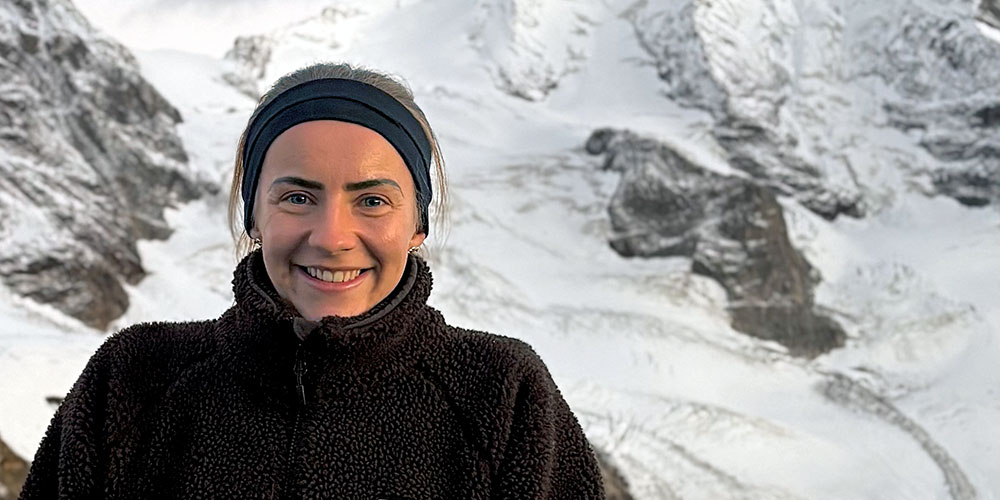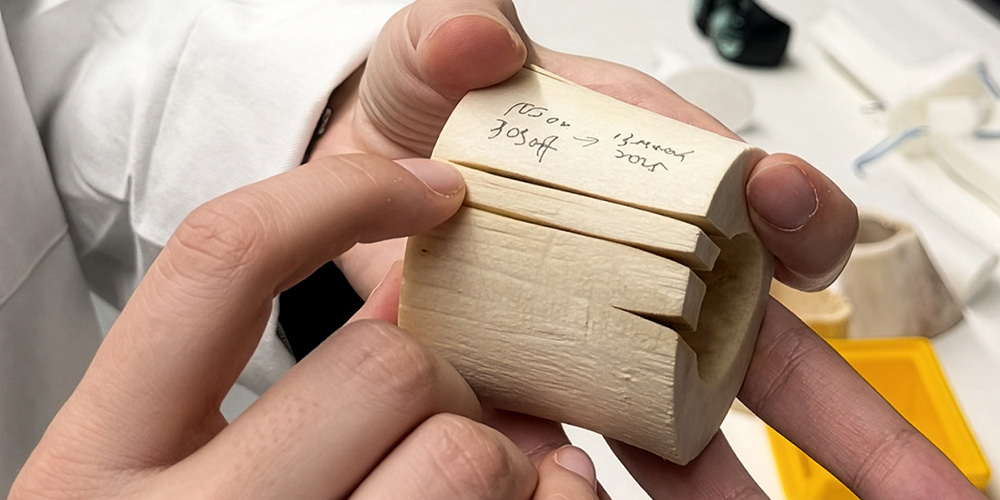Four ERC Consolidator Grants for research in Basel
The European Research Council (ERC) awards four researchers from the University of Basel with one of the coveted ERC Consolidator Grants. The projects in the fields of cell biology, physics, immunology and chemistry will each receive around two million euros in funding.
17 March 2022
With the Consolidator Grants, the ERC supports highly qualified young scientists with several years of research experience and a promising scientific track-record. For their projects, they receive an average of around two million euros over a period of five years. Across Europe, 313 applicants receive this coveted research grant, including four researchers from the University of Basel.
Photosynthesis in marine algae
Photosynthesis is essential to life on Earth because it provides food, while replacing atmospheric carbon dioxide with oxygen. Chloroplasts in marine algae perform about 25 Percent of the Earth’s photosynthesis, however, the molecular organization of these vital photosynthetic organelles remains uncharted.
In his ERC project, cell biologist Prof. Dr. Benjamin Engel from the Biozentrum of the University of Basel is studying the architecture of chloroplasts in diverse species of globally important marine algae, exploring how the energy of sunlight is captured and used to fix carbon dioxide. Engineers will be able to build on these discoveries to seek new solutions for improving photosynthesis, with applications for increasing crop yield, producing clean energy and potentially countering climate change, itself.
Benjamin Engel has been an assistant professor for structural biology and biophysics at the Biozentrum of the University of Basel since 2021. Previously, he worked at Helmholtz Zentrum München, where he also submitted his ERC application.
Long-lasting protection against lung infections
Tuberculosis claims more lives than any other infectious disease. It is known that CD4 T cells play a central role in the immune response to tuberculosis, but efforts to target these cells has not yet delivered a successful vaccine candidate. Currently, the only vaccine in use is 100 years old.
Professor Carolyn King from the Department of Biomedicine at the University of Basel is taking a more holistic approach in her research. Her work suggests that CD4 T cells that interact with B cells in the lungs have a better chance of providing long-lasting protection against lung infections. In her project, the immunologist aims to establish a new, complementary perspective on TB, using pioneering new technology to elucidate the function that antibodies and tissue-resident B cells play in infection.
Carolyn King joined the University of Basel’s Department of Biomedicine in 2016 as an SNSF Professor. From October 2022, she will continue her research as a professor at the University of Lausanne.
Theoretical foundations for future quantum technologies
The project of Professor Jelena Klinovaja addresses challenges in the field of topological quantum matter. So-called topological qubits could be suitable to reliably encode information for a quantum computer and overcome the shortcomings of conventional qubits.
Jelena Klinovaja is researching new methods to induce and selectively modify topological phases. Her project focuses on various topological phases arising in semiconductors with strong spin-orbit interactions due to superconductivity that is induced by photons in quantum cavities. This novel way of inducing superconducting pairing by coupling quantum light to quantum matter opens entirely new perspectives for both the generation of novel topological phases and their manipulation.
Jelena Klinovaja has been an assistant professor since 2014 and associate professor of physics (theoretical nano/quantum physics) in Basel since 2018. In 2017, she was awarded a Starting Grant by the ERC.
Engineering of artificial binding proteins
Directing nanoscale particles to adhere strongly to certain cells and tissues is a difficult biophysical problem and at the same time an interesting clinical prospect. Today, monoclonal antibodies are often used for this purpose, for example, to bind specifically to cancer cells and introduce a substance that causes the cell to die. However, antibodies are known to unbind at extremely low forces.
In his ERC-funded project, Professor Michael Nash wants to develop artificial binding proteins that form mechanically stable complexes with their target ligands. These could be used, for example, to deliver drugs in the form of nanoparticles as well as for medical imaging.
Michael Nash has been assistant professor since 2016 and associate professor for engineering of synthetic systems since 2021, as part of a dual professorship with ETH Zurich. In 2016, he was awarded a Starting Grant by the ERC.
Financing through Swiss federal funds
At the time of the ERC Consolidator Grants 2021 deadline, Switzerland was still eligible for ERC funding. Researchers at Swiss institutions were able to submit applications and their research proposals were evaluated by the ERC.
Following the breakdown of the negotiations between the EU and Switzerland, as well as the European Commission’s decision to treat Switzerland as a non-associated third country, the successful projects will now be funded directly by the State Secretariat for Education, Research and Innovation (SERI) with an average of CHF 2 million. This is one of the interim measures that the Swiss government is taking to cushion the consequences of Switzerland’s exclusion from Horizon Europe.
This was the last ERC call that Swiss-based researchers were eligible to apply to. The Swiss National Science Foundation has launched transitional measures to establish similar calls for researchers based in Switzerland, or those who wish to carry out their project at a Swiss Host Institutions. In addition, many of the Horizon Europe Calls remain open to Swiss research groups, who can participate as project partners and will be financed by the SERI.
Further information
Matthias Geering, University of Basel, Head of Communications & Marketing, phone: +41 61 207 35 75, mobile: +41 79 269 70 71, email: matthias.geering@unibas.ch


